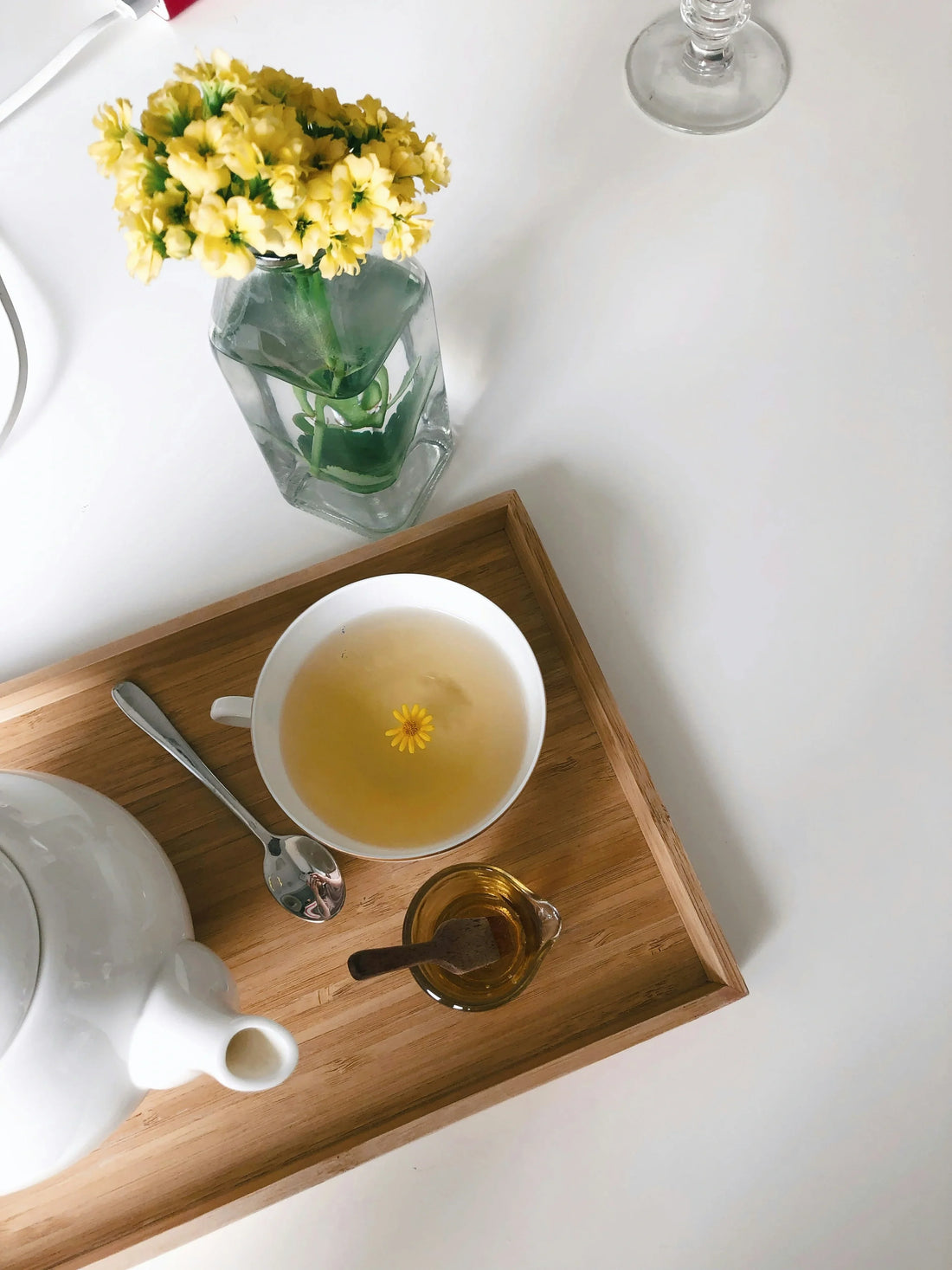
Lluvia x Feridora- Sip & Sleep: The Soothing Power of Nighttime Teas
Share
IG: @lluvia_tea
1. What teas do you think are best for better sleep?
Chamomile tea: It has a natural compound called apigenin that helps calm the brain, easing anxiety and making it easier to relax and fall asleep.
Lavender Tea: It is soothing and helps you unwind, making it perfect for relaxing and falling asleep more easily.
Ashwagandha Root Tea: It helps balance stress hormones, making it ideal for relaxing and easing stress-related sleep issues.
2. What is the science behind drinking tea before bed?
Drinking tea can actually help your body get ready for sleep! When you sip tea, your body goes through a gentle warming and then cooling process, which can make you feel sleepy as it prepares to rest.
The simple rituals of making tea—like boiling water and inhaling the steam—can also help calm your mind and signal that it's time to unwind.
Many herbal teas have mild sedative effects, meaning they help relax your brain in a natural way, similar to how some anxiety medications work, but without any grogginess or risk of dependency. This makes tea a great choice for promoting relaxation before bed.
3. Do you have a personal tea ritual for winding down?
Yes, I do have a cozy spot for my tea with a favourite cup, blanket, and a notebook for jotting down thoughts. While steeping, I practice deep breathing to relax my body. As I sip, I use to visualise my mind clearing of the day’s stress. I enjoy a calming Lluvia Tea blend with herbs like chamomile, Lavender and ashwagandha roots and consider putting away screens 30 minutes before tea to enhance relaxation.
4. How can we include Lluvia teas in a nightly routine?
Lluvia Tea could create a special nighttime blend with calming herbs like chamomile, lavender, aswagandha, etc. making it easier for customers to relax at the end of the day. To enhance the tea’s calming effects, suggest putting away screens for 30 minutes before enjoying it, allowing the body to prepare for sleep. Additionally, for those struggling with sleep, encourage keeping a tea journal to jot down thoughts or expressions of gratitude while sipping their tea. This simple practice can help clear the mind and promote relaxation before bedtime.
5. Any myths about tea and sleep you want to debunk?
There are some common myths about tea that need clearing up. First, while black tea is often thought of as a high-caffeine pick-me-up, it's not necessarily higher in caffeine than other types of tea; the colour and processing of the leaves don’t significantly impact caffeine levels. Second, green tea contains less caffeine than coffee or black tea, so drinking it in moderation is unlikely to cause insomnia, although those sensitive to caffeine might want to avoid it later in the day. Lastly, some people believe that tea, especially caffeinated varieties, can lead to dehydration. While caffeine does have a mild diuretic effect, it’s not strong enough to cause dehydration from moderate tea consumption.
